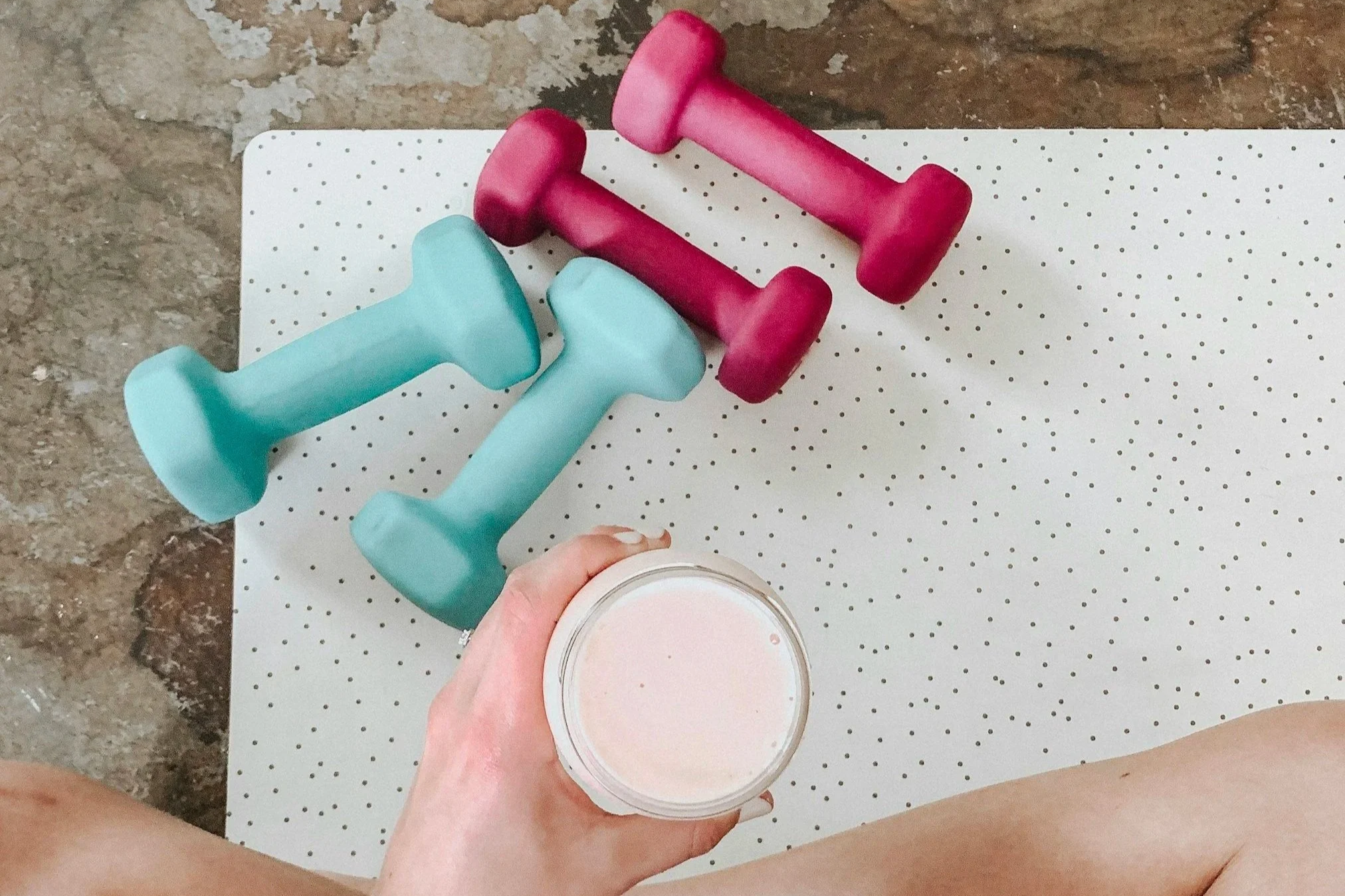7 Things Every Woman Should Be Doing in Perimenopause
In this post, you’ll learn the seven evidence-based habits that help reduce perimenopause symptoms like weight gain, mood swings, insomnia, and low energy and why they actually work.
If you’ve been googling “Why do I feel different in my 40s?” or “Is this perimenopause?” you’re not imagining it.
Your body can start responding differently years before your period stops, sleep changes, mood shifts, weight redistributes, and your energy feels unpredictable.
That was me at 46. I started crying for no reason, losing my resilience, and reacting to things that never used to bother me.
Years earlier, I had signs I didn’t recognize, night sweats in my early 40s, insomnia before my period, waves of sadness at the end of my cycle.
My GYN prescribed an antidepressant. No conversation about hormones. No explanation of why this was happening. But everything I was feeling had a root cause: hormonal fluctuations that begin during perimenopause.
Understanding that changed everything. It gave me clarity, direction, and my confidence back.
If you're here because your body suddenly feels different and no one has connected the dots for you yet, this is where you start.
If you’re not sure which of these seven areas your body needs most right now, take my 2-minute quiz and get a personalized starting point. It’s the fastest way to understand your symptom pattern and what to prioritize first.
Once you have clarity on your symptom pattern, the next step is building habits that actually support your hormones.
These seven evidence-based foundations are where every woman in perimenopause should start, regardless of whether your biggest struggle is sleep, weight gain, mood changes, or low energy.
1. Eat More Protein
Why does protein matter so much in perimenopause?
Estrogen plays a major role in maintaining muscle mass, metabolism, and blood sugar stability. As estrogen fluctuates, your protein needs increase and most women don’t eat enough to compensate. This is why fatigue, cravings, and stubborn weight gain (especially belly fat) become more noticeable during perimenopause.
How to support your hormones naturally:
Aim for 25–30 grams of protein per meal
Choose eggs, Greek yogurt, tofu, beans, lean meats, or protein powders
Prioritize protein at breakfast to prevent blood sugar crashes
2. Strength Train 3–4 Days a Week
Why is strength training essential during perimenopause?
Muscle and bone density decline faster as estrogen drops. Strength training is the only proven way to counter this. It boosts metabolism, improves insulin sensitivity, and reduces many common perimenopause symptoms like fatigue, anxiety, and weight changes.
How to support your body:
Use dumbbells, resistance bands, or bodyweight
Focus on squats, lunges, pushups, deadlifts
Increase resistance gradually to protect muscles and bones
3. Balance Your Blood Sugar
Why does blood sugar matter so much now?
Fluctuating estrogen and progesterone make your body more sensitive to glucose spikes. High or unstable blood sugar worsens hot flashes, brain fog, irritability, cravings, fatigue, and midsection weight gain.
How to support your body:
Pair carbs with protein and healthy fats
Avoid skipping meals, it spikes cortisol
Reduce sugar, processed foods, and alcohol
Focus on whole foods, fiber, veggies, healthy fats
4. Prioritize Sleep Like It’s Medicine
Why does perimenopause impact sleep so much?
Fluctuating estrogen and progesterone affect melatonin, cortisol, and temperature regulation. This is why so many women experience the classic 3 a.m. wakeups, night sweats, and restless sleep during perimenopause.
How to improve sleep during perimenopause:
Keep your room cool and dark
Limit screens before bed
Ask your provider about magnesium glycinate
Avoid alcohol, it worsens night sweats and sleep quality
Struggling specifically with 3 a.m. wakeups? Read this next: Why Perimenopause wrecks your sleep and what you can do about it.
5. Reduce Stress to Lower Cortisol
Why does stress hit harder during perimenopause?
Estrogen helps buffer cortisol. When estrogen fluctuates, stress impacts your body more intensely leading to anxiety, irritability, weight gain, inflammation, and sleep disruption.
How to support your nervous system:
Take daily outdoor walks
Do breathwork, meditation, or grounding exercises
Set strong boundaries
Include restorative movement like yoga or stretching
6. Advocate for Yourself at Every Appointment
Why is self-advocacy so important now?
Perimenopause is diagnosed by symptoms, not a single lab test. Many women are told they’re “too young” or “fine” even when they’re experiencing classic signs of hormone imbalance.
Use my free Perimenopause Action Plan to:
Track symptoms and hormonal patterns
Identify triggers (like caffeine, stress, or cycle changes)
Prepare clear questions for your doctor
Walk into appointments informed, confident, and prepared
You don’t have to accept “You’re fine” as an answer when you know you’re not. Perimenopause is real, even when your labs look “normal.”
7. Build Community & Stay Connected
Why does connection matter during perimenopause?
Women in their 40s and 50s often feel isolated in their symptoms even though millions are searching the same questions online. Connection lowers cortisol, increases resilience, and reminds you that what you’re feeling is normal and valid.
Ways to build support:
Talk honestly with trusted friends
Join supportive women’s wellness groups (online or in person) where perimenopause conversations are welcomed, not dismissed.
Sign up for my newsletter at DrJaimeLynne.com for weekly hormone tips, science-based strategies, and encouragement
Final Thoughts
Perimenopause feels overwhelming when it feels unpredictable. It becomes manageable when you understand what your body is responding to.
These seven habits are not trends. They are foundational physiological supports for a body navigating hormonal change.
Start small. Start consistently. And build from there.
Your next steps:
Your Next Step:
→ Take the 2-minute quiz to identify your dominant symptom pattern
→ Download the Perimenopause Action Plan before your next appointment
→ Or explore more here: Perimenopause Symptoms Explained
Your body isn’t failing, it’s communicating.
Now you have the tools to understand it.
Hi I’m Dr. Jaime Lynne
A women’s health advocate and educator passionate about helping women navigate the confusing and often overlooked journey of Perimenopause. I empower women to recognize their symptoms, speak up, and get the care they deserve.





